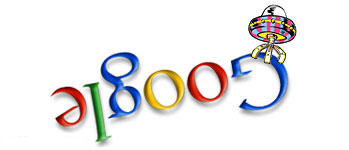The Meanings of Googliness
Published on Aug 12, 2013 (updated Apr 29, 2025), filed under misc. (Share this post, e.g. on Mastodon or on Bluesky.)
The following post discusses the concept of googliness. It does not imply every Googler embodied googliness.
The words “googley” and “googliness” (sometimes also spelled “googly” and “googleyness”) are not found in common language. Even at Google, where they’ve been coined, it’s not clear to everyone what these words mean. And that’s no surprise: You don’t get a handout with a description, and googliness has indeed more than one meaning. And still—“googley” and “googliness” are almost magical words.
Here’s my own interpretation of what it means to be googley. What qualifies me to give one? Apart from having worked at Google for more than five years, I got to work with a few extraordinarily googley people who’ve been at Google for many more years, some who paid special attention to teaching their reports and peers googliness. In my career at Google I, too, have then tried to inspire googliness, mostly by leading by example. Whether I succeeded (my personality can interfere with my intentions) is on others to judge, but I’ll give myself the credit of working much on it. The idea of googliness made me love Google, and made me love going to work.
Googliness means:
Doing the right thing. That obviously includes not doing anything that harms someone else, or that puts somebody at a disadvantage.
Striving for excellence. Mediocrity is not googley. At Google, unsurprisingly, you find the desire for excellence right at the core, reflected by the goal to “do one thing really, really well.”
Keeping an eye on the goals. Googliness means being focused, and striking a balance between short-term and long-term objectives.
Being proactive. Google’s Code of Conduct says “if something is broken, fix it.” But being proactive also means anticipating moves ahead of time so to take action preemptively. It also applies to the business itself—how can we go further, what can we do to get there? Seen from another angle, then, what being proactive doesn’t mean is waiting (beyond reason) for others to make something happen.
Going the extra mile. This is mostly found in the detail. It’s my favorite googley skill. Take the following example: Someone emails you for a project change. Such updates are normally filed through a request management system. One response: asking the requester to file the request through said system. Another, more googley response: filing the request oneself, and sending the requester a status update at the earliest convenience. The difference this makes is huge.
Being friendly and approachable. Google is famous for being friendly and open; it’s googley to be friendly and open. This account dates back before my time but I believe Googlers were at some point explicitly encouraged to proactively join co-workers they didn’t know for lunch, to talk to and get to know them. That certainly rings googley. Similarly, the most successful managers at Google maintain “open door” policies; it’s googley to be that approachable.
Valuing users and colleagues. It’s googley (and something Google “knows to be true”) to put the user first, and similarly to help a co-worker. It’s not googley to let either down.
Doing something nice for others, with no strings attached. Being googley means thinking about and doing something for others, and not necessarily expecting something in return.
Rewarding great performance. Hard work, though not listed here, is googley. But hard work, and good work as mentioned, should also be rewarded. Rewards can (and do at Google) take many forms: endorsing notes to managers, kudos, shout-outs in meetings, monetary rewards, &c.
Being humble, and letting go of the ego (at least sometimes). It’s okay to talk about achievements, but it’s not googley to boast (which can be a fine line). Being googley means thinking of the user, the company, the team, and then oneself. That’s accompanied by the belief that everything else, including rewards and promotions, will follow.
Being transparent, honest, and fair. Non-transparency, dishonesty, unfairness, also secrecy are inherently ungoogley.
Having a sense of humor. It’s not googley to oppose play. (Notice the number of and great efforts behind Google’s hoaxes, jokes, and easter eggs in this regard.)
As you can see, there’s a lot to being googley. And you can tell why the idea of googliness is so wonderful: We notice when people are being googley, and we always wish the others who aren’t were, at least a little.
Any Googlers seeing this, please help correct or add to this!
Update (February 15, 2023)
It’s painful to see that 10 years later, googliness appears to have turned into “don’t rock the boat.” That’s not what googliness meant, or should mean.
Update (April 6, 2025)
Many years after writing this post, I’d add one point:
- Being courageous. I believe googliness has also always entailed courage.
As it has been a while, I’m keeping this brief.
About Me
I’m Jens (long: Jens Oliver Meiert), and I’m an engineering lead, guerrilla philosopher, and indie publisher. I’ve worked as a technical lead and engineering manager for companies you use every day (like Google) and companies you’ve never heard of, I’m an occasional contributor to web standards (like HTML, CSS, WCAG), and I write and review books for O’Reilly and Frontend Dogma.
I love trying things, not only in web development and engineering management, but also in philosophy. Here on meiert.com I talk about some of my experiences and perspectives. (Please share feedback: Interpret charitably, but do be critical.)

